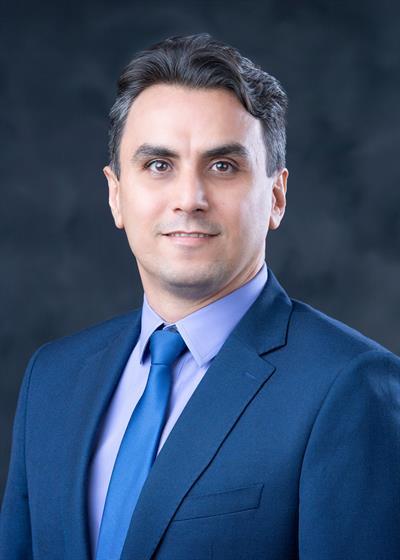
Farshid Vahedifard

Research/Areas of Interest
- Resilient and equitable infrastructure
- Impacts of extreme events (e.g., drought, flood, wildfire) in a changing climate on infrastructure and communities
- Climate adaptation of infrastructure
- Slopes, dams, and levees
- Unsaturated soil mechanics
- Multi-physics (e.g., hydro-mechanical, thermo-hydro-mechanical) processes in soils
- Analytical and numerical methods in geotechnical engineering
Education
- Doctor of Philosophy, University of Delaware, USA, 2011
- Graduate Certificate, University of Delaware, Newark, United States, 2011
- Master of Civil Engineering, University of Delaware, USA, 2009
- Master of Science, Bu-Ali Sina University, Hamadan, Iran, 2005
- Bachelor of Science, K.N.Toosi University of Technology, Tehran, Iran, 2001
Biography
Dr. Vahedifard's research efforts primarily encompass the areas of civil and geotechnical engineering interfacing with grand challenges of Climate Change, Resilient Infrastructure, and Environmental Justice. He has been studying the resilience and adaptation of critical infrastructure (e.g., levees, dams) to extreme events (e.g., drought, flooding, wildfires, compound, and cascading hazards) in a changing climate, with a particular emphasis directed toward disadvantaged communities. The transdisciplinary nature of his research has enabled him to successfully establish and lead several collaborative efforts with other areas to integrate geotechnical and civil engineering into various engineering and science fields, including climate science, hydrology, data science, geosciences, social science, and remote sensing. His primary interest in fundamental geotechnical research lies in characterizing and modeling the behavior of variably saturated slopes and earthen structures under multi-physics processes. Dr. Vahedifard has received research grants from NSF, USDA, NOAA, NASA, and DOD, among others. He has authored over 200 peer-reviewed articles in scholarly journals and conference proceedings and has supervised over 50 postdocs, Ph.D., and MS students.